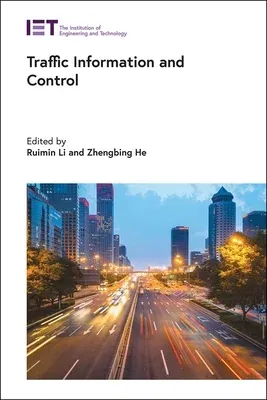Written by an international team of researchers, this book focuses on
traffic information processing and signal control using emerging types
of traffic data. It conveys advanced methods to estimate and predict
traffic flows at different levels, including macroscopic, mesoscopic and
microscopic. The aim of these predictions is to optimize traffic signal
control for intersections and to mitigate ever-growing traffic
congestion.
The book begins with an introduction to the topic, its fundamental
principles and recent developments. The first part of the book then
covers the estimation and prediction of the traffic flow state based on
emerging detailed data sources. Coverage in this section includes
traffic analytics with online web data; macroscopic traffic performance
indicators based on floating car data; short-term travel time prediction
by deep learning a comparison of different LSTM-DNN models; short-term
traffic prediction under disruptions using deep leaning; real time
demand based traffic diversion; game theoretic lane change strategy for
cooperative vehicles under perfect information; and cooperative driving
and a lane change-free road transportation system.
The second part focuses on traffic signal control optimization,
explaining how to use improved data and advanced tools for better signal
control. Chapters include urban traffic control systems; algorithms and
models for signal coordination; emerging technologies to enhance traffic
signal coordination practices; control for short-distance intersections;
and multi-day evaluation of adaptive traffic signal system based on
license plate recognition detector data.
A valuable resource for researchers and engineers working in the field
of traffic information and control, and intelligent transport systems,
Traffic Information and Control offers an overview of recent research
and practical approaches to optimising traffic signal control.

